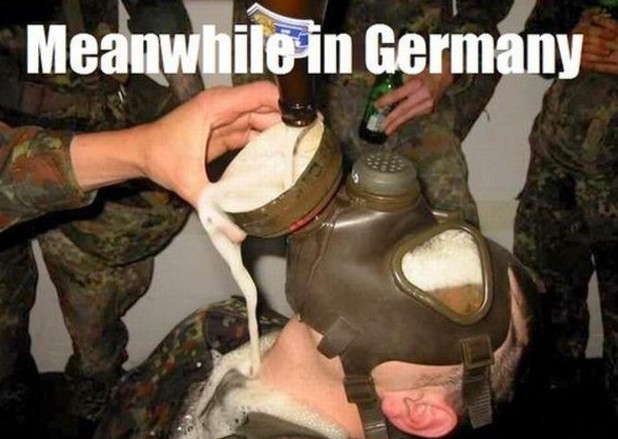[Just as a new offensive was gaining traction, Tuttle and everyone else was shocked at being ordered to pull back.]
A shock wave greater than that from any explosive shell ripped through American lines just after noon. All forward units, everywhere on Kyushu, got orders to pull up and move back to the previous good fighting line, not less than one half mile back – immediately.
The move had to be completed by nightfall. Also, every man was to check the state of his gas mask. Officers were to plan inspections of masks by no later than 9 am the next morning.
Whatever sort of uncomfortable shell-wracked muddy crap holes those men were in, they had fought for them. They were offended at the idea of pulling back. They did so anyway, but complained loudly to the wind, which should have turned red at the profanity it heard.
Field kitchens served men where they could before packing up, but some simply dumped a whole hot meal. Junior staff officers scrambled to figure out where people were, or were going to be, or simply to find room for everyone when units suddenly wound up on top of each other.
Still, the men assumed there was some marginally rational reason for the order (despite all previous experience with Army orders). Suppositions started with some use of chemical shells by the Japanese elsewhere on Kyushu, to wild stories of plague infested rats being loosed by the OSS.
I fell in with a heavy weapons platoon, making instant friends by offering to haul two cans of machine gun rounds. Once back to roughly where they would wind up, everyone sat down waiting for final orders from the battalion. Their commander, Utahan Lieutenant Levi Pace, took stock of the gas mask situation. Of 47 men active in the unit, ten had a mask with them. Six of those had a good filter canister.
A gas mask was on the fingers of every soldier on the morning of the initial landing. No one knew what to expect of Japanese tactics when Americans first invaded their homeland. Two months later, after zero need for them, most gas masks had been ‘misplaced’ as men lightened their combat load. The changeable filter canisters could be hollowed out to make cooking vessels or many other handy things.
The lieutenant tasked three men with running, as fast as they could, back to division depots for more masks. They were too late. Rear units had been there first, leaving only what supply men kept in reserve for barter. As night fell the platoon counted a lucky thirteen working gas masks, and had IOUs to fill with several division quartermasters.

